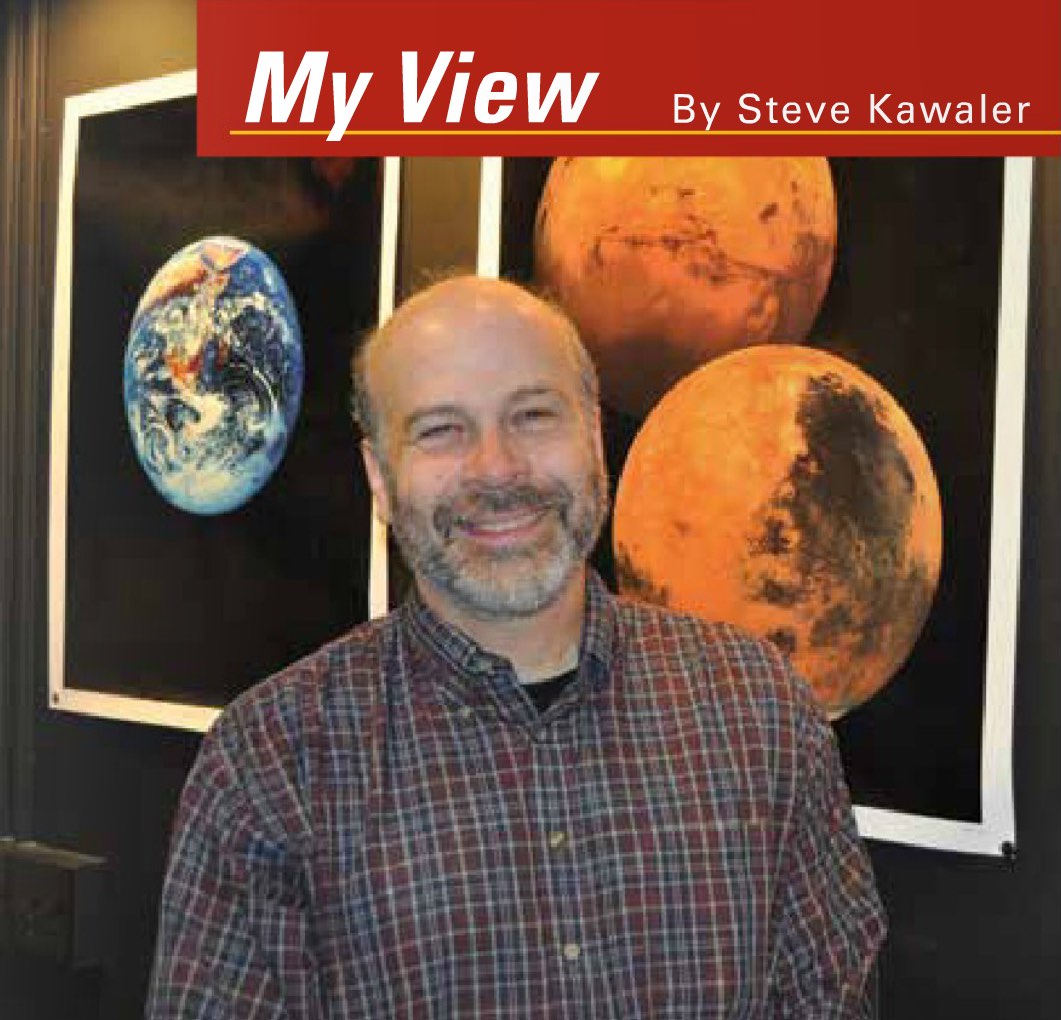
Exploring the universe
at a space-age bargain*
When I was 5, I discovered a book left over from my older brother's infatuation with space. It was called The Golden Book of Astronomy. That "astronomy" word was a complete mystery. Still, I opened the book and waas instantly taken by the colorful drawings of the moon, planets and spaceships.
Soon thereafter, during my first look at the moon through a small telescope, I decided I was going to be an astronaut. And I wasn't alone. Most kids then (and now) really loved space, and growing up as the Apollo program progressed had us all excited for our future exploring the solar system.
I soon realized that the Apollo astronauts came from the top ranks of military pilots and had nearly superhuman physical and intellectual prowess, while I was a skinny kid with a fear of heights. By the time I started junior high, my goals shifted to becoming an earth-bound astronomer. A few treasured high school teachers and other mentors encouraged my out-of-this-world interest, and I eventually entered the appropriate academic track in college and beyond.
Not so for most of my former-future-astronaut friends who, like my brother, moved on to alternate career paths. I'm back in touch with many of
my old friends, thanks to Facebook. They are not at all surprised that I've stayed close to the path that I had embarked on with them, and
always provide warm and proud commentary to my posts describing the work I do.
NASA Kepler mission
My research these days centers around NASA's Kepler mission - a space telescope designed to discover planetary
*Originally published in Link: News from the College of Liberal Arts & Sciences, Spring 2013
systems around other stars. The Kepler mission's price tag is upward of $600 million. Is that really a good way to spend other people's money?
Those fond of pointing out waste in federal spending have no shortage of ammunition, but most of us are weary of those sorts of arguments. These arguments work, to some extent, in that we really don't want to take "ownership" of a $750 airplane toilet seat (to cite an old example). But I rarely meet a person who minds having a few pennies of their tax dollars spent in search of other worlds, or exploring stars, galaxies or the early universe. In fact, most take pride in the accomplishments even though they, personally, have no direct part in the discovery.
Why? Kepler costs about $2 per American. We expect that by the time the mission ends, it will have discovered and characterized 3,000 planetary systems. So, one penny from each American's pocket will have paid for the discovery of 15 new planetary systems.
Few, if any, will tolerate even a clear and well-illustrated discussion of why an airplane's toilet seat has special properties - and if so,
they'd still be outraged at the price tag. But those same people, when hearing about the latest discovery of a planetary system, will then
wonder about how life might exist in that system without a thought about the material cost of the instrument, the costs of the salaries of the
researchers and their students, or the ultimate value to our economy or national security.
Exploring the universe
I think that the reason why most Americans enjoy hearing about discoveries in space is that they remember their early days in school, as children, innocently wondering about space and wanting to grow up to explore the universe. Though they may have been thwarted by the math, or physics, or by the distractions of embarking on a useful life, their fascination wit the universe has not diminished. They are glad that someone else is working on making these discoveries. Still they want (and deserve) to be told about these discoveries in ways that they can appreciate.
It is a fair bargain - a partnership. Taxpayers don't have to commit to a quasi-monastic life studying obscure math and physics, yet for a few pennies they can be a part of the exploration of the universe. To those of us who have spent our lives developing those peculiar skills, those aggregated pennies provide us with the support needed to do the work behind the headlines, while living relatively normal lives, raising families and developing ancillary technologies for application to more down-to-earth problems.
So, from one "monast" who has, by one route or another, been enabled to do something as eclectic as exploring the universe, a hearty "thank
you!" And have you seen this crazy new system we just found with Kepler? Here, let me show you...
- Steve Kawaler is a professor of astrophysics in the Department of Physics and Astronomy